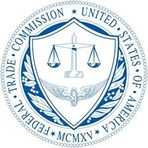FTC Bans Noncompete Agreements Nationwide: A Victory for Worker Freedom
April 25, 2024, 3:35 pm

Location: United States, District of Columbia, Washington
Employees: 501-1000
Founded date: 1912

Location: United States, District of Columbia, Washington
Employees: 1001-5000
Founded date: 1914
The Federal Trade Commission (FTC) has taken a bold step in banning noncompete agreements nationwide, freeing millions of workers from being shackled to their current jobs. The new rule, set to take effect in 120 days, will eliminate barriers that prevent employees from seeking better opportunities and starting their own businesses.
FTC Chair Lina Khan emphasized the importance of this decision, stating that noncompetes keep wages low, stifle innovation, and hinder economic growth. By abolishing these agreements, the FTC aims to unleash a wave of entrepreneurship, with an estimated 8,500 new startups expected to emerge each year.
The impact of this rule goes beyond just financial gains for workers. It is projected to lead to a surge in business incorporations, higher earnings for employees, and reduced healthcare costs. Additionally, the FTC predicts a significant increase in patents filed annually, signaling a boost in innovation and creativity.
While the U.S. Chamber of Commerce has threatened legal action against the FTC, arguing that the ban is an overreach of power, the agency remains steadfast in its commitment to promoting worker freedom and economic prosperity. This move aligns with President Joe Biden's directive to curb the use of noncompetes in the labor force, signaling a broader effort to empower workers and foster a more competitive economy.
In industries like mortgage and real estate, where noncompetes are less common but still prevalent among executives and certain employees, the impact of this rule will be felt across various sectors. By dismantling these restrictive agreements, the FTC is paving the way for a more dynamic and inclusive labor market, where workers are free to pursue their career aspirations without fear of retaliation.
Overall, the nationwide ban on noncompete agreements marks a significant victory for worker freedom and economic mobility. It represents a crucial step towards creating a more equitable and vibrant workforce, where individuals are empowered to chart their own path and contribute to a thriving economy.
FTC Chair Lina Khan emphasized the importance of this decision, stating that noncompetes keep wages low, stifle innovation, and hinder economic growth. By abolishing these agreements, the FTC aims to unleash a wave of entrepreneurship, with an estimated 8,500 new startups expected to emerge each year.
The impact of this rule goes beyond just financial gains for workers. It is projected to lead to a surge in business incorporations, higher earnings for employees, and reduced healthcare costs. Additionally, the FTC predicts a significant increase in patents filed annually, signaling a boost in innovation and creativity.
While the U.S. Chamber of Commerce has threatened legal action against the FTC, arguing that the ban is an overreach of power, the agency remains steadfast in its commitment to promoting worker freedom and economic prosperity. This move aligns with President Joe Biden's directive to curb the use of noncompetes in the labor force, signaling a broader effort to empower workers and foster a more competitive economy.
In industries like mortgage and real estate, where noncompetes are less common but still prevalent among executives and certain employees, the impact of this rule will be felt across various sectors. By dismantling these restrictive agreements, the FTC is paving the way for a more dynamic and inclusive labor market, where workers are free to pursue their career aspirations without fear of retaliation.
Overall, the nationwide ban on noncompete agreements marks a significant victory for worker freedom and economic mobility. It represents a crucial step towards creating a more equitable and vibrant workforce, where individuals are empowered to chart their own path and contribute to a thriving economy.